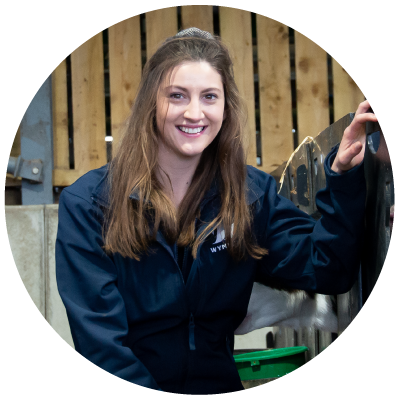Animal welfare is becoming an ever-increasing concern for the consumer and becoming more prominent in dairy contracts. Recent research has highlighted the importance of physical enrichment for calves in their environment. Studies from the University of Reading suggest that pen enrichment can promote natural behaviours, and reduce stress and frustration among calves (Mason and Burn, 2011).
Giving calves more choice in how to express natural behaviours, will boost their welfare as well as highlight any potential calf health implications earlier, with calves in poorer health tending to not utilise enrichment methods as much; this ultimately leads to better overall health and performance. Offering choice accommodates individual differences in their behaviours, and can give greater insights into how to detect illness by observing changes in behaviour.
UK dairy housing and calf environment requirements are designed to provide calves with sufficient cover for their basic needs, from water, feed, light and spacing etc. Unfortunately, they do not yet take into consideration other welfare needs such as grooming as well as psychological needs and the ability to express ‘natural’ behaviour.
Physical Enrichment
Research has found the use of physical enrichment, such as springs and plastic chains which calves can chew, expressing their naturally curious, exploratory behaviour. The use of other options such as chains and ropes which calves can chew or suck on should be used with caution as it can lead to increased risk of disease spread.
The use of balls which calves can ‘headbutt’ and play with, whether in groups or individually can be advantageous and an inexpensive method of enrichment! Studies show that physical pen enrichment can be highly beneficial in a group or paired-housed calves, but they are even more important for calves housed individually.
Social Enrichment
Grooming, either social/group or self, is frequently observed in cows. The time an animal spends grooming depends on several factors, whether environmental such as bedding materials and internal such as disease. The time a calf spends grooming can be used as an indicator of health. Implementing brushes, whether automatic or stationary, into the calf pen can stimulate a calf’s natural grooming behaviour and needs, compensating for the frequent grooming they would naturally receive from their mother (Johnsen et al., 2015; Pempek et al., 2017; Horvath and Miller Cushon, 2019).
Environmental enrichment
The idea of providing pen enrichment for health and improving welfare has become a standard within the pig and poultry industry. Cow brushes are becoming ever-popular within the dairy sector, but the benefits are often overlooked when it comes to calves and youngstock.
Providing environment enrichment can reduce the time calves spend on non-nutritive oral behaviour, such as pen-directed sucking or cross-sucking, which can have negative effects on calf health.
Providing this type of enrichment will allow calves to express their natural behaviour and can help boost animal welfare. This, therefore, can help contribute to better performance and early detection of illness due to observed changes in behaviour.










